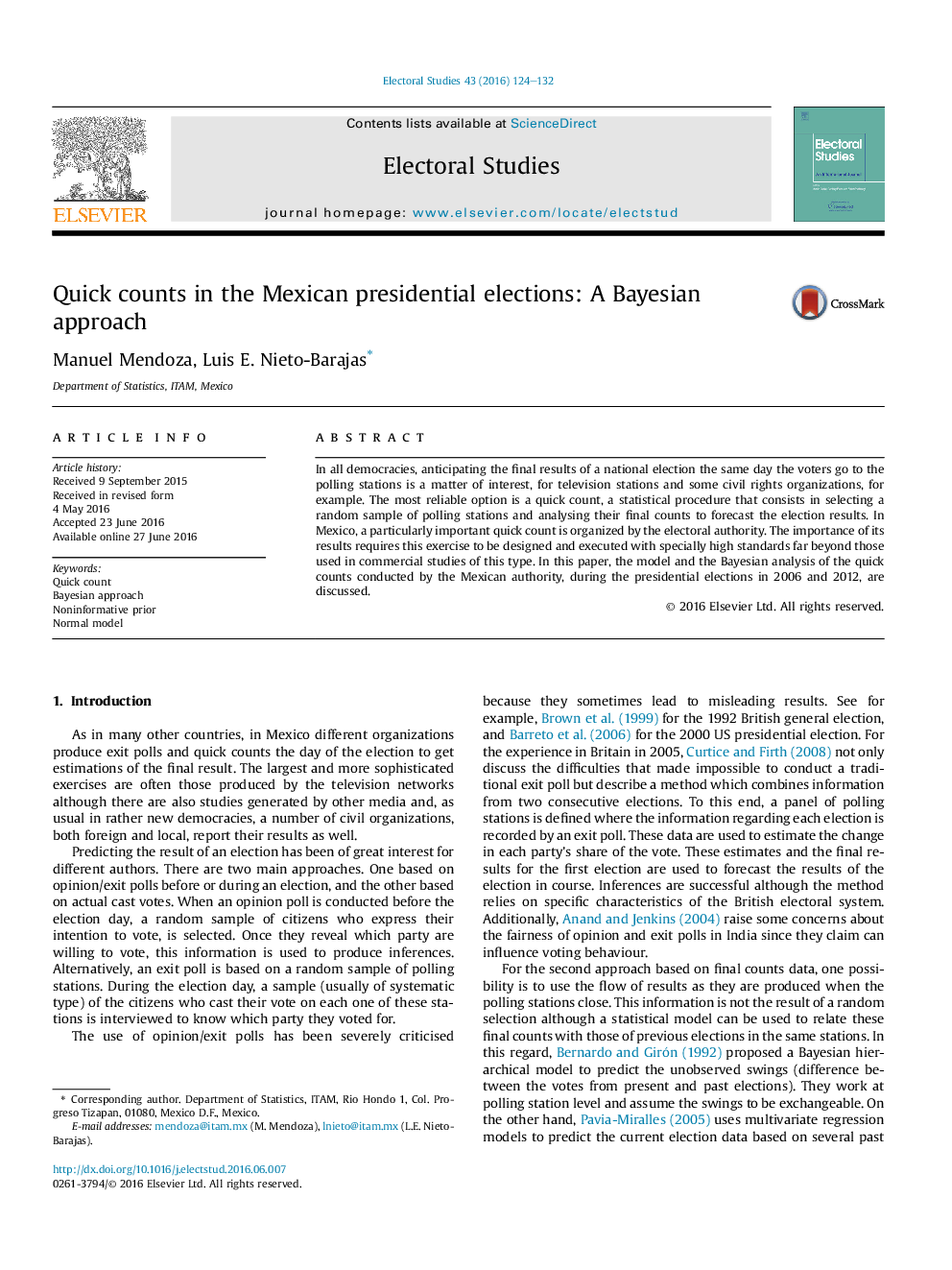| Article ID | Journal | Published Year | Pages | File Type |
|---|---|---|---|---|
| 7463570 | Electoral Studies | 2016 | 9 Pages |
Abstract
In all democracies, anticipating the final results of a national election the same day the voters go to the polling stations is a matter of interest, for television stations and some civil rights organizations, for example. The most reliable option is a quick count, a statistical procedure that consists in selecting a random sample of polling stations and analysing their final counts to forecast the election results. In Mexico, a particularly important quick count is organized by the electoral authority. The importance of its results requires this exercise to be designed and executed with specially high standards far beyond those used in commercial studies of this type. In this paper, the model and the Bayesian analysis of the quick counts conducted by the Mexican authority, during the presidential elections in 2006 and 2012, are discussed.
Related Topics
Social Sciences and Humanities
Social Sciences
Geography, Planning and Development
Authors
Manuel Mendoza, Luis E. Nieto-Barajas,
